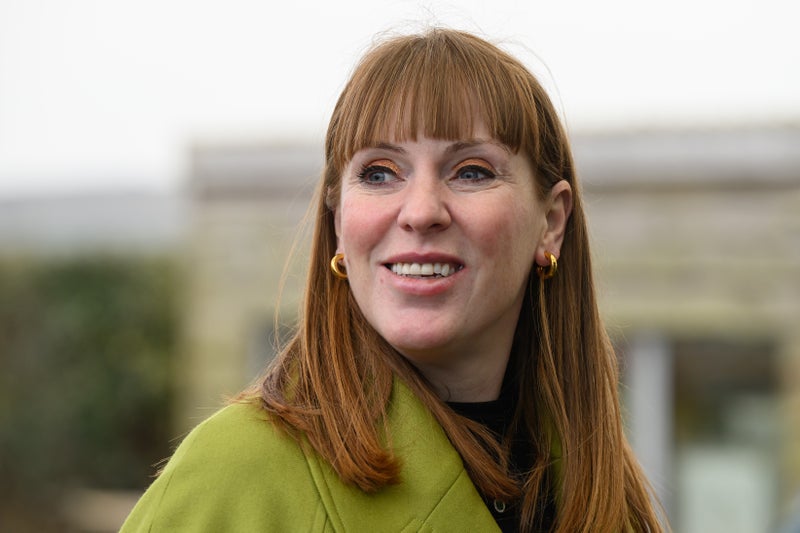Has Sir Keir Starmer picked a fight with a bat tunnel that - in time - he will eventually discover he just can't win?. For the last six months, the prime minister has singled out the most hated construction site in Britain for criticism - a kilometre-long, £100m shed to protect bats in Buckinghamshire from the high speed trains of the future. Sir Keir regularly thunders that this is the emblem of a broken planning system. His chancellor says such things will never happen again. But is their joint political sonar advanced enough to avoid a collision in the coming months?.
Recent weeks have seen a slew of announcements from Number 10 to prove they are taking on the "blockers" in order to get Britain building. But government sources conceded to Sky News they are yet to reveal a plan which would stop such structures having to be built again in future. HS2 will continue to build this bat tunnel, due to be complete in 2027, come what may. A compromise plan - that would see developers pay into a single government-controlled pot - has left experts and industry figures unimpressed, saying it would not stop another bat tunnel.
The experts also warn that they struggle to see how the government prevents future absurd and costly structures without repealing nature and habitat laws we inherited from the EU. Welsh first minister 'expecting uplift' in money for railways in Wales from Westminster as she slams 'unfair' HS2 funding. Government doesn't know how much HS2 will cost or when it will be running. HS2 boss reveals £100m bill for a railway line 'bat shed' that 'isn't needed'.
To roll back on these protections would mean not only war with the environmental movement, but also breaching our trade agreement with the EU - all to get Britain building again. There is no obvious answer, yet ministers on Monday insisted one is still coming soon. This comes as today Sky News shows the first ever pictures of the HS2 bat tunnel, showing the scale and breath of the ten-figure development through the Buckinghamshire countryside and taken despite our request for permission to go on site by the government-owned company being declined.
By scrambling through trees and trudging through muddy public footpaths, we were able access open space close enough to the structure, to film the site in detail with a drone without crossing into HS2 land - and it makes quite the spectacle. Three miles north west of Aylesbury, cutting through the countryside like a scar and wedged between two industrial waste incinerators, we show from the sky the roofless skeleton of the kilometre-long shed which will insulate railway tracks being built in Buckinghamshire - and protect the bats.
Follow our channel and never miss an update. The aim is to stop a rare breed known as the Bechstein, which lives in an ancient woodland adjacent to the route, from hitting future high speed trains when they run from London to Birmingham. The entire structure exists so that HS2 can comply with "The Conservation of Habitats and Species Regulations 2017" - a set of regulations which protects rare species, derives from the EU Habitats Directive and remains in force in the UK to this day despite Brexit.
Although often wrongly summarised as meaning "no bat death is acceptable", regulator Natural England did advise HS2 that to comply with this law, the company would need to maintain the "favourable conservation status" for the 300 bats once construction was complete. No easy feat. HS2 executives mulled digging a tunnel, noise-based deterrents and rerouting the line, which would slow down the High Speed trains and prove too expensive. They also looked at barriers alongside the railway or a looser netting structure over the railway - but none of these would have been guaranteed to deliver the standard of protection required by law.
But their engineers and consultants advised the cheapest, legally safest route was the shed being built today. And after four years of meetings with the local council, construction began and continues to this day. The government's growth mission champion, Dan Tomlinson MP, who visited the bat tunnel site with Sky News, said reform is vital. "We need to find a way to reduce the cost of infrastructure in this country. Yes, protecting our wildlife too. But if we don't do that, we won't be able to build and we won't be able to make this country grow again, which is something that's been lacking for so long," he told me.
But can they stop this in future? The government insists the answers will come in as-yet-unpublished future planning legislation and yesterday government doubled down on its ambition. "Spending vast sums to build a 'bat tunnel' is ludicrous," said a spokesman. "For too long, regulations have held up the building of homes and infrastructure, blocking economic growth and doing little for nature. That is why we are introducing new planning reforms and a nature restoration fund to unblock the building of homes and infrastructure and improve outcomes for our natural world. This will deliver a win-win for the economy and nature.".






























